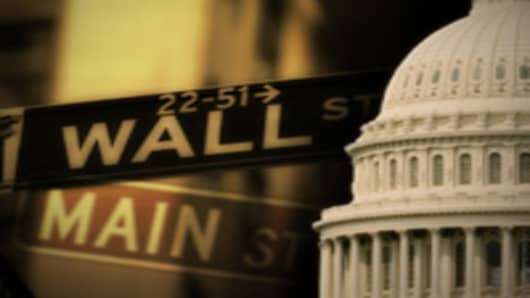The creation of the 10-member Financial Stability Oversight Council chaired by the US Treasury Secretary is possibly the best item coming out of the bill.
It will be created immediately and begin its prudential activities.
The FSOC has the ability to bring together principal financial regulators for the purposes of monitoring and managing systemic risk.
Also, the orderly liquidation authority creates a new federal receivership process pursuant to which the FDIC may serve as a receiver for large, interconnected financial companies. This was a function that was missing prior to Lehman. Federal Reserve Chairman Ben Bernanke said this was a major hole in the ability of regulators to deal with an entity that posed a significant risk to the financial stability of the United States.
These changes will help, but never prevent another financial crisis. Unfortunately, this bill goes well beyond the scope of reducing systemic risk.
What does this mean for the markets?
In the short run, the markets ran far ahead of the passage of the bill and increased their outlook for financial firm’s expenses. So, the negative impact has already been priced in for these companies. This means the announcement has no market impact. Also due to the implementation period of 4 years, the credit reduction that McConnell correctly warns about won’t occur immediately and will be spread out over 4 years. This is great news as the economy should have recovered completely by then and the negative impact to business will be reduced.
After full implementation, this bill will reduce bank’s profits, reduce bank’s ability to compete globally and reduce credit to the economy. The biggest losers for the drop in credit will be small to medium sized firms which are the drivers of job growth in the United States. Regulation increases the cost of what is being regulated as it simultaneously reduces the supply of what is being regulated. On government action, Reagan once said, “If it moves, tax it. If it keeps moving, regulate it. And if it stops moving, subsidize it.”
We are now in the second phase of this quote and my guess is there will be additional subsidies to stimulate lending to small to medium sized firms shortly. Oops, I meant to say more subsidies.
________________________
Andrew B. BuschDirector, Global Currency and Public Policy Strategist at BMO Capital Markets, a recognized expert on the world financial markets and how these markets are impacted by political events, and a frequent CNBC contributor. You can comment on his piece and reach him hereand you can follow him on Twitter at http://twitter.com/abusch.



